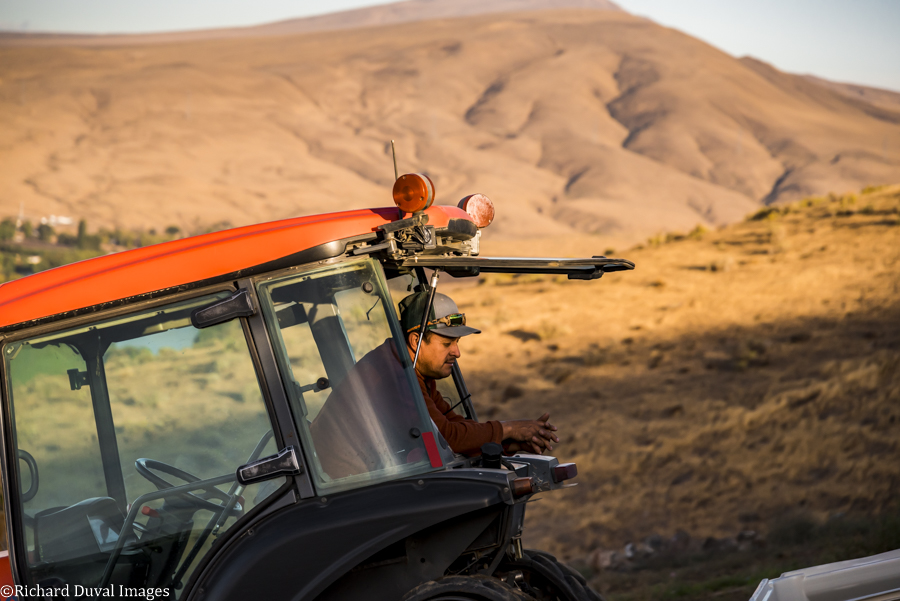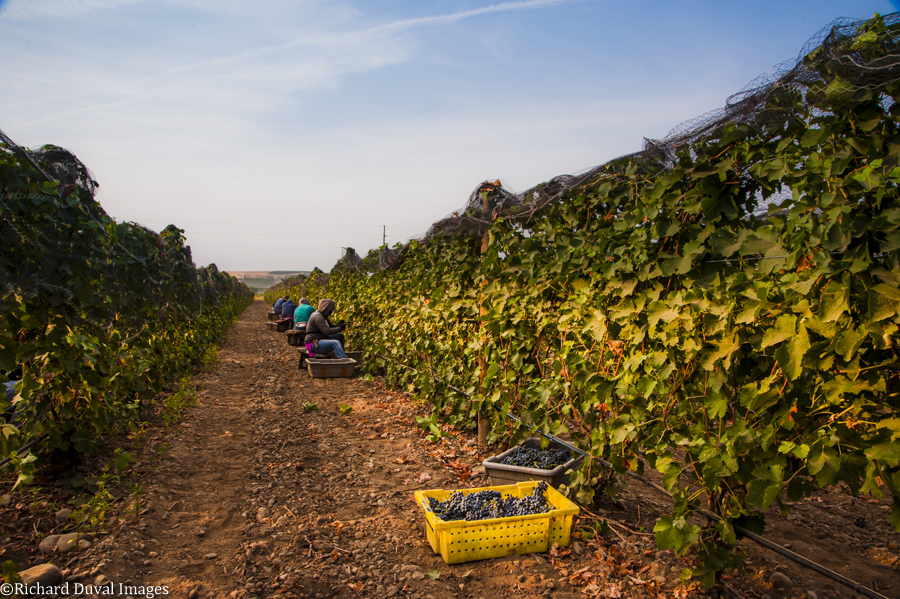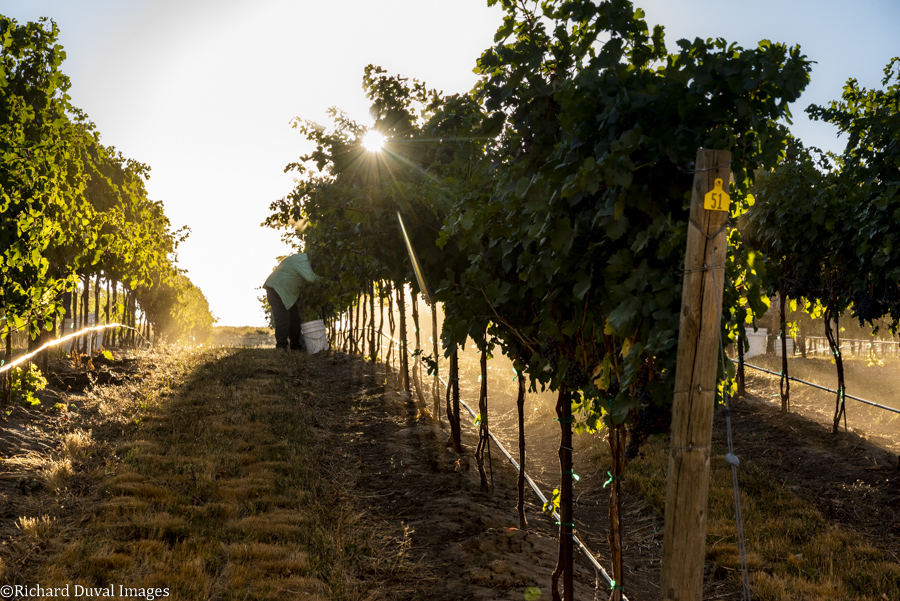What does it mean to you to be a part of this program—and the first of its kind at that?
On April 6, 2022, Forbes published an in-depth article about Breaking Ground, highlighting the program, how it began, and what we hope it will become. You can read the article here, which was written by Jillian Dara, but because you can only fit so few people in one article (that article featured two of our ambassadors), we wanted to share how our other farmer ambassadors responded to the questions Jillian asked our farmers. In this five-part series, you’ll find the questions that Jillian asked our farmers, and you’ll get to hear from the farmers who responded to them. You’ll also see them in both English and Spanish. We hope you’ll enjoy getting to see some of the making of Breaking Ground, and that afterward, you’ll join us in raising a glass to those who grow our grapes.

What does it mean to you to be a part of this program—and the first of its kind at that?
Jaime Gonzalez: It means a lot because it is a way of showing the world the process and care of the vineyards.
Miriah Falce: It’s so special. The purpose, focus, and work behind the project is so meaningful and important to me, and it’s not lost on me that by uplifting some of the unseen voices in the industry we will be raising the {already high} caliber of what Washington wine is. It hopefully inspires not only consumers to look more into all the people involved in their favorite bottles, but those in the industry to examine their peers as well. I’m extremely honored and proud to be a part of these shared stories. Everyone deserves to be celebrated and recognized for their hard work, no role is too big or too small or more important than someone else, and this program means we get to showcase that.
Bernadette Gagnier: It is hugely important to me. Since I joined the Washington Wine Industry, I have felt that the farming aspect is not highlighted enough. The term “winemakers are the golden children of the wine industry,” is something I have heard since my first day interning in vineyards in Washington State. Winemakers are a crucial part of the team that gets wine to consumers of course, but without all the work that happens before winemakers ever see the grapes, there would be no wine. I feel that farming and the work in a vineyard is equally important as the winemaking process and deserves its own time to shine. These two aspects of the wine industry should be celebrated equally!
It is a team effort, and I am so glad that WA Wine recognized that a whole side of the industry was not being represented. When I was approached to be part of this program, I was hesitant because I work in research, agriculture (viticulture) research, but at this moment in my life I am not actively farming. All of my work is going towards farming and giving growers new and different techniques, but I am not presently in a commercial vineyard. I was reassured that they wanted to highlight ALL aspects of the vineyard, even research. The fact that they saw a need to highlight farming, and then even branched out to include other facets of viticulture, is really special. I am very grateful to be part of this program and the platform they are creating to share the unseen efforts that bring Wa Wine to consumers.
Brittany Komm: When I was first contacted about this program I literally broke down in happy tears and then internally started screaming for joy at the top of lungs. I was so happy to finally see the Washington Wine folks finally getting on board with this. Since I officially professionally entered this industry in 2014, it has been my platform to get people to recognize that there is more to winemaking than just the winemakers and what happens in the cellars.
My Instagram account has been documenting this and my push since for farmer/crew recognition since than. I was quoted in an article a few years ago for saying something along the lines that winemakers needed to start sharing the spotlight when wines would win awards are be recognized for something great. Without great grapes there would be no great wine, plain and simple. I know this rubbed a lot of folks the wrong way but to me it was something that needed to be said. I am known for speaking the truth, even if people may not want to hear it. Being the Vineyard Education Director for Precept I have a wide audience and can reach a lot of people across the US. I have always put the vineyard side of this industry in the spotlight and put our vineyard crews up on a pedestal. The farming side of this process is where it all begins, without the farmers there would be no wine.
We eat, breath, sweat, bleed, cry, and sleep in these vineyards.—Brittany Komm
We eat, breath, sweat, bleed, cry, and sleep in these vineyards. It is about time the world gets to start hearing our stories. The stories will be shedding an entirely different light onto the wine industry, and it wouldn’t surprise me if other major growing states/countries follow our lead.
Sadie Drury: Being part of this program allows me to share the often untold story of the grape vines and the people who tend them. It’s easy to drive by a beautiful vineyard and know great wines are grown there, but there’s still a disconnect between what happens in that vineyard throughout the year and how the grapes are farmed.
Rosanna Lugo: It is totally awesome. We have an opportunity to showcase the work that goes into making outstanding wines and help tell our story to the guests that taste our wines. It is full circle!
Jay Itote: I’m grateful to be contribute to this effort by the commission to bring diverse voices to the wine industry in Washington and beyond. I spent a life advocating for inclusion and diversity, particularly in the professional engineering industry. Even though I’ve been the first person of color in the front door of most firms I’ve worked from, I’m still in shock to still be that in 2022. I’m equally as shocked when that company diversifises over time, and I witness that collective talent and creativity come together to elevate that company’s bottom line. I’ve lived long enough to give witness and to appreciate the outcome. I commend the Washington State Wine Commission for decision of inclusion. The Ambassador Program is already a success. All you have to do is look at the incredible work and history of my fellow Ambassadors.
The Ambassador Program is already a success. All you have to do is look at the incredible work and history of my fellow Ambassadors.—Jay Itote


